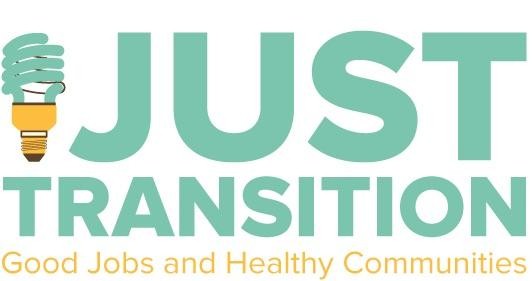More than Just Words

Transitioning to net zero emissions by 2045 is not just a challenge of deploying technology to combat climate change in time. It is a balancing act of recognising historic social and economic injustices that are fundamentally intertwined with our energy, transport, housing, land and economic systems, to avoid exacerbating those injustices or creating new ones going forward.
It is also a massive opportunity to actively correct some of them in the process.
Retrofitting homes, for instance, can reduce bills for vulnerable and low-income families who already pay disproportionately more for their energy; developing a clean, affordable transport system can connect excluded groups and create new employment and recreational opportunities; creating quality green jobs can ensure that industrial workers and communities are able to prosper as dirtier industries evolve and decline; supporting communities more broadly can help ensure that the transition reflects local need.
Cleaning up our energy, transport, land, buildings and economy is thus not just a chance to combat the climate emergency: it is a formative moment in history to build a fairer, healthier society.
This is why I was excited for the release of the Scottish Government’s Just Transition Commission report this week, to hear how Scotland can transition to net zero in an ambitious, equitable way. As much as anything, it was exciting to hear the fundamental issues of justice and equity taken seriously in a high-level government net zero report, especially compared to the recent lukewarm UK equivalents like the 10-point plan for a green industrial revolution.
The JTC report, then, speaks refreshingly on the socioeconomic elements of the big issues of energy, transport, industry, skills, housing and land in relative depth. Special attention is paid to the basic common decency of engaging actual people from across society in the process (individuals, households, communities and workers) to centre what they themselves want, need and can afford. This is always a good start. Likewise, acknowledging that leaving the transition to markets alone is likely to result in inequities getting worse, and that a genuinely “just” transition will take a lot of targeted funding, taxation, policy and politics to enforce, is the kind of grown-up conversation that too many discussions on this topic have been missing.
In all then, 24 recommendations of varying specificity and vision are made to ensure that the transition to net zero is both effective and inclusive. Of these recommendations there are some smart, perhaps unsurprising ideas, but also some pretty bold and interesting ones too.
At the top of these recommendations, important space is given to skills, jobs and the relationships between industry and place, with reference to the Doric Knot (my term, not theirs) of North Sea oil and gas. Carbon border taxation is suggested as a potential means to encourage a greater share of renewables manufacturing domestically to create some of those new jobs (and greening the 180,000 industrial jobs that already exist) on Fair Work terms. Skills and training get some really good airtime as well. It’s good to see trade union fingerprints on this; a common thread throughout.
At the household-level, the focus of the report is on improving energy efficiency. For its lack of sex, this is actually really welcome too. Recognising that flashy technologies like heat pumps and hydrogen boilers – exciting and important as they will be – are not necessarily the most effective nor affordable first port-of-call for many lower income households is reassuring (don’t hurt me, heat pump Twitter). Interestingly, solar barely gets a mention. The potential for new and transitioned jobs in installation, building and supply feature strongly here again, which is important.
Other notable suggestions include enhanced Green Participatory Budgeting for communities and statutory public interest tests for significant changes in land ownership (reheated from the Scottish Land Commission in 2019), although it would have been good to have had more of a discussion about the hooring out land for half-hearted corporate offsetting too at this point. Free public transport pilots were also floated as a fresh and innovative proposal (focus on the expansion of public transport to remote and under-served communities over subsidising private electric cars is likewise generally good), alongside more forward-thinking measures to make sure future energy innovations aren’t monopolised by higher income groups, with lots more intriguing ideas in between.
On the whole then, the JTC report ticks a lot of the right boxes. It recognises that a just transition needs more than flash technology. It recognises that electric vehicles bring their own issues and that public transport and the transition in general brings its own opportunities. It recognises the extant need for skills and training, that local empowerment will be essential, and that a jobs- and communities-first transition is ultimately crucial. There are some notable omissions too of course (there’s no engagement at all with the exploitative private rented sector, where a huge number of lower income households reside, for instance) but broadly speaking, it says a whole lot of the right things and is well worth your time to read. Parties and Holyrood candidates in particular, take note.
Perhaps most importantly though, it recognises that ideas are only half the battle. In Scotland, we’ve always been very good at saying the right things and coming up with solutions through commissions and reports like this. Yet despite years of saying the right things on a lot of these issues, big big challenges remain. Our public transport system is still massively exclusionary and incoherent; we’ve yet to create green jobs on the scale we know we need; costs and benefits of the energy system are still disproportionately shared; land ownership is still fundamentally outrageous; we’re still waiting for a National Energy Company and various other ambitious initiatives have floated quietly into the carbon-laden ether over the years.

Our work on renewable energy is seriously impressive and rightly a source of national pride for many, but we can’t hide behind our turbines on this. Saying the right things is one thing: making a just transition happen is another entirely.
This for me is where the JTC report is actually better than most. It’s honest about the need for more than socio-technical or policy solutions. Lots of the proposals themselves will be up for debate (many will wince at the suggestion of carbon capture and storage, for instance) and are not necessarily brand new. But there is an emphasis about the need to mobilise and organise politically across all sectors and layers of civic society, to create coordinated pressure to hold the powers at be to account, that is infectious. With the Holyrood election coming up and COP26 later this year, this is something we should all be taking to heart.
Some of the most exciting recommendations from the JTC were thus more quietly crucial. Collaboration between government, trade unions and communities is an especially interesting recurring theme, while suggestions for making the transition the remit of the Deputy First Minister with increased formal scrutiny feels more political than a lot of reports are willing to go. But of all the recommendations, the following is perhaps most significant: “let people know that they own this transition, that it is not something that is being done to them.”
That goes for all of us, I think. The transition to net zero is inevitable, but justice won’t happen of its own accord. If we want it to be fair, we need to take ownership and encourage those around and above us to do the same, loudly and consistently, so that we can seize the opportunity by the blades. We have the words. We have the ideas. It’s up to us to turn that into action.

Indeed, “lack of sex” could have the biggest contribution of all, although I guess humans could be industrially-grown without it. Useful to have a short summary of the report. I tried skimming the Executive Summary and my eyes glazed over. On electric vehicles, the plan surely should be to minimise private ownership and concentrate on utility vehicles like, er, electric milk floats (and why not for parcel/grocery deliveries too).
https://en.wikipedia.org/wiki/Milk_float
I was wondering if restorative/reparative justice would feature. Not sure it does, except in the abstract: “restoring [Scotland’s] natural environment”, including biodiversity. My view is that Scotland should be doing its fair share to redress historical wrongs that have robbed others of some of their environmental restoration capacity. So for me it goes beyond the question of ‘can they pay’. Nevertheless the major inheritors of those despoliations are still loaded with loot, land and luxury, and any just transition would sort them out.